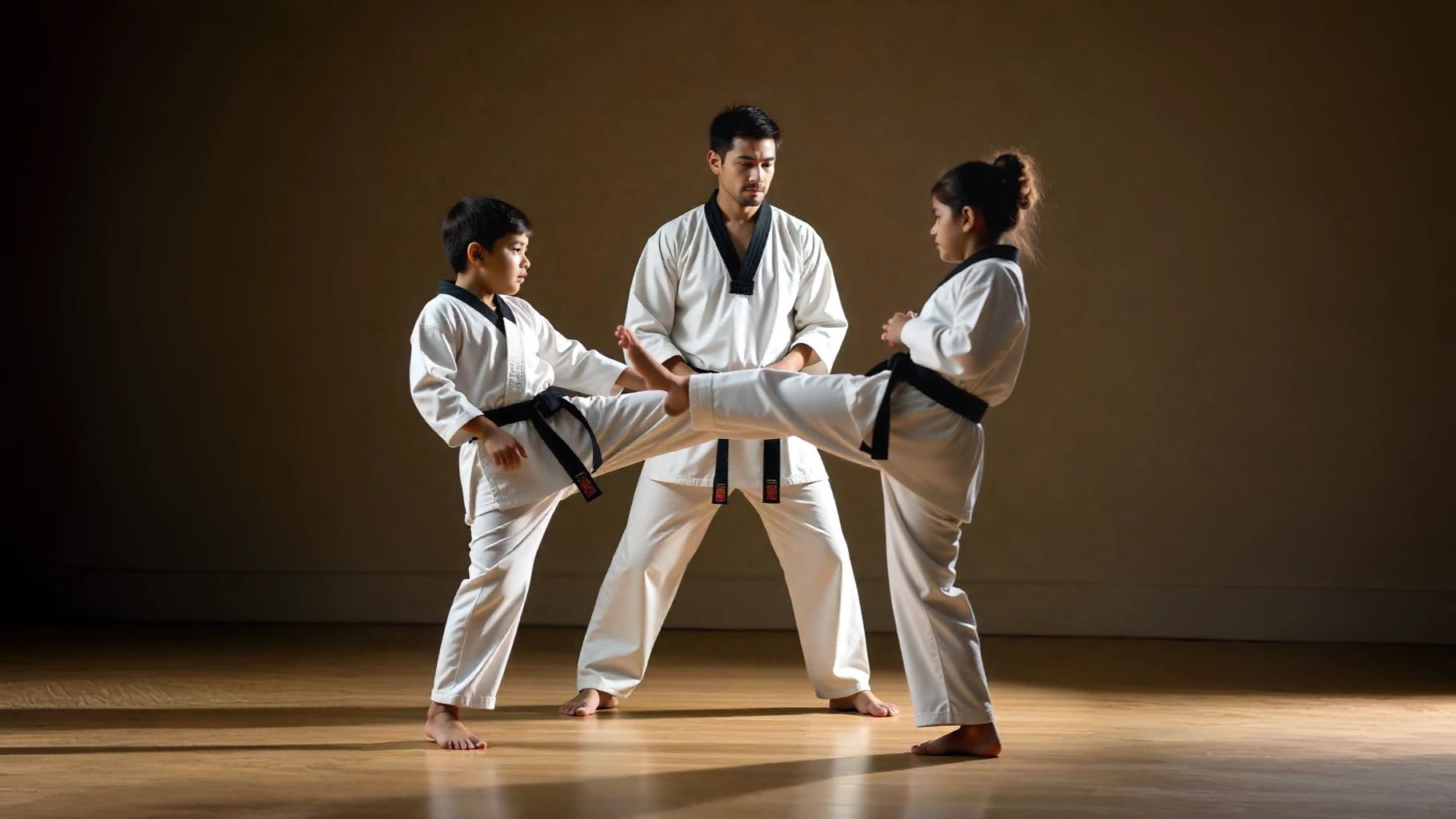
Where Can I Find The Best Martial Arts Lessons Near Me?
- 01 Feb 2025
- Martial Art
You might be wondering where to find the best martial arts lessons that suit your needs. As I explored various options, I discovered that the right martial arts school can significantly enhance your self-defense skills, discipline, and physical fitness, all while fostering a sense of community. It’s important to consider factors such as location, instructor qualifications, and the variety of styles offered. In this post, I’ll guide you through the best methods to identify local classes that align perfectly with your goals and lifestyle.
Key Takeaways:
- Research Local Studios: Investigate various martial arts studios in your area to compare their offerings and credentials.
- Check Reviews: Look for reviews and testimonials from current and former students to gauge the quality of the lessons.
- Visit and Observe: Attend trial classes or open sessions to experience the training environment and instructor style before committing.
Understanding Your Martial Arts Options
While choosing a martial art form, you’ll encounter a variety of styles that cater to different preferences and goals. It's important for you to explore what each type brings to the table, as this will significantly influence your training experience. I recommend evaluating your personal interests and desired outcomes when selecting a style. Below is a brief comparison of some popular martial arts:
| Martial Art | Focus |
|---|---|
| Karate | Striking and self-defense |
| Judo | Grappling and throws |
| Taekwondo | Kicking and speed |
| Brazilian Jiu-Jitsu | Ground fighting and submissions |
| Muay Thai | Striking with elbows and knees |
Any of these styles can be rewarding based on what you seek in your martial arts journey. From self-defense skills to fitness improvements, understanding these options is key to making an informed choice.
Benefits of Each Style
On diving deeper into the benefits of each style, it's clear that each one offers unique advantages that can align with your goals. For example, if your focus is on physical fitness and martial conditioning, Taekwondo and Muay Thai provide intense workouts that enhance cardio and strength. Judo and Brazilian Jiu-Jitsu emphasize grappling techniques, promoting flexibility and problem-solving skills through ground defense. Meanwhile, Karate fosters discipline, balance, and striking techniques, which are crucial for both self-defense and personal growth.
Consequently, each martial arts discipline imparts valuable skills and characteristics beneficial for your mental and physical well-being. Taekwondo improves agility while also teaching you striking techniques. Judo and Brazilian Jiu-Jitsu are excellent for self-defense and developing effective grappling skills. Karate can build your confidence and discipline. With every technique you learn, you not only improve your physical capabilities but also cultivate a mindset focused on respect and perseverance. I encourage you to reflect on what resonates with you as you seek the best martial arts lessons near you.
Steps to Finding Local Martial Arts Classes
There's a variety of approaches I can take to find the best martial arts lessons near me. To get started, it's vital to dig deeper into the options available in my area. I will want to focus on researching different schools and instructors, as this can significantly impact my martial arts journey. A good instructor can make all the difference in learning effectively and enjoying the process, so I should not settle for just any dojo. I will check online reviews, explore their social media pages for any feedback, and even visit the schools if possible to get a feel for the atmosphere. Engaging with the community and speaking to current students can also provide me with valuable insights into their experiences. This information will help me create a shortlist of professionals whose teaching styles resonate with what I am looking for in martial arts training.
Researching Schools and Instructors
An vital step in my search involves examining the qualifications and teaching styles of potential instructors. I should look for instructors with solid expertise in their martial arts field and interests. It's vital to find someone whose philosophy aligns with my personal goals, whether that’s self-defense, fitness, or competition. I can also ask about the instructor's experience in teaching and their approach to teaching mixed skill levels, as an engaging learning environment helps foster a positive experience. Engaging in conversations with instructors can also give me a sense of their teaching methods before committing to a class.
Evaluating Class Schedules and Locations
Schools that offer martial arts classes often have varying schedules, which can impact my ability to attend consistently. I must evaluate the class times and how they fit into my busy lifestyle to ensure I can commit to progressing in my training. Additionally, the location plays a significant role in my decision-making process. Schools that are too far away may discourage regular attendance. Ideally, I want to find a local dojo that is easily accessible, allowing me to make training a part of my routine.
Classes that fit my schedule will help in forming a long-term commitment, enhancing my skills without adding stress to my life. Flexibility in class offerings is a bonus; I should look for facilities that provide various levels, such as beginner and advanced, along with specific classes catered to different goals. The goal is to immerse myself in an engaging environment where I feel comfortable and challenged at the same time, allowing for personal growth in my martial arts journey.
What to Look for in a Martial Arts School
Keep in mind that the quality of the martial arts lessons you receive largely depends on the school and its instructors. One of the first aspects I consider is the instructor qualifications, as they play a significant role in shaping your training experience. The instructors should have a strong background in the martial art they teach, ideally with certifications from reputable organizations and experience in teaching students at various skill levels. I also pay attention to their communication skills and ability to connect with students, as this can greatly enhance my learning environment. A knowledgeable instructor should not only demonstrate techniques effectively but also possess the ability to motivate and inspire you to reach your goals.
Instructor Qualifications
Behind the technique and discipline of martial arts lies the importance of effective teaching. The best instructors are those who have not only mastered their craft but are also skilled at conveying that knowledge to their students. In my experience, I find that instructors who continually seek professional development, attend seminars, and stay updated on the latest training methodologies tend to create a more enriching environment. Look for instructors that have a variety of teaching styles to adapt to the needs of their students; personalized instruction can make all the difference in a learning journey.
School Atmosphere and Culture
Martial arts schools can vary widely in terms of their atmosphere and culture, which is something I believe can greatly influence your training experience. An inclusive and supportive environment is imperative for fostering a sense of community and encouraging student camaraderie. I appreciate schools that prioritize respect and discipline while also maintaining a friendly, welcoming vibe. Observing how students and instructors interact can give you insight into the overall culture—look for schools where students encourage one another and celebrate each other's progress. You want to be part of an atmosphere that fuels passionate training while still emphasizing safety and self-improvement.
But, it’s important to stay alert for any negative signs in a school’s culture, such as overly aggressive behavior, a lack of respect among students, or a strong emphasis on competition over personal growth. Just as you trust your gut feeling in any other activity, you should feel a sense of acceptance and positivity in the martial arts school you choose. After all, a strong school culture not only enhances your learning experience, but it can also foster lasting friendships and personal growth along the way.
Assessing Class Structure and Types
Despite the numerous options available for martial arts lessons, understanding the class structure and types offered is necessary for a rewarding experience. Each school might present its approach to teaching, and it's valuable to assess how classes are organized. Below is a summary of various structures you may encounter:
| Class Type | Description |
| Traditional | Focuses on time-honored techniques and philosophical teachings. |
| Competitive | Emphasizes sparring and tournaments to enhance skill and experience. |
| Mixed | Combines various styles and techniques for holistic learning. |
| Self-Defense | Concentrates on practical techniques for real-life scenarios. |
| Fitness | Makes martial arts training a fun way to achieve fitness goals. |
Any assessment of class structures will aid you in selecting what aligns best with your goals. Ensure that the instructor's style resonates with what you hope to achieve, whether it’s fitness, self-defense, or traditional techniques.
Beginner vs. Advanced Classes
Assessing the differences between beginner and advanced classes can greatly affect your martial arts journey. It's pivotal to recognize the distinction in technique level and training expectations. Here’s a breakdown of how these classes typically differ:
| Beginner Classes | Advanced Classes |
| Focus on fundamental techniques | Enhances complex skills and tactics |
| Introductory pace | Faster pace and higher intensity |
| Emphasis on body mechanics | Focus on strategy and adaptation |
| Basic sparring techniques | Competitive sparring situations |
- Assess your current skill level.
- Identify your training goals.
- Inquire about class schedules.
- Look for progression opportunities.
- Visit classes before committing.
Choosing between a beginner class and one for advanced practitioners can make a significant difference in your rate of learning and enjoyment. When beginning, I find that it's beneficial to start with fundamental classes, allowing for the development of a solid technique foundation before advancing to more challenging programs.
Private Lessons vs. Group Classes
Around the selection of martial arts lessons, a common question is whether to engage in private lessons or group classes. Both have distinct advantages that suit different learning styles and needs. Private lessons offer the benefit of individual attention, allowing for personalized feedback and accelerated learning. Meanwhile, group classes foster a sense of community, offering an environment where you can learn and practice techniques with peers.
Private lessons might be ideal if you seek tailored instruction that addresses your specific goals or vulnerabilities. However, group classes can often lead to a greater range of experiences, including sparring with multiple partners, exposure to various techniques, and enhanced engagement with the martial arts community. Ultimately, I recommend considering what suits your personality and learning preferences best:
Private instruction enables you to focus diligently on areas that may be less developed and can accelerate your progress, while group settings enhance your adaptability and sparring skills. Explore what fits your needs, and you'll be well-equipped for an enriching martial arts journey.
Cost Considerations
All aspiring martial artists should take cost into account when searching for the best lessons nearby. The expenses associated with martial arts training can vary widely based on location, style, and facility. Typically, you can expect to pay anywhere from $50 to $200 per month for membership or classes. Additionally, many studios may offer a variety of pricing structures, such as one-time fees for drop-in classes, or discounted rates for multiple sessions purchased in advance. It's imperative to consider not just the base cost but also factors like equipment, uniforms, and testing fees, which can add up over time.
Average Pricing in Your Area
Between my research and personal experience, I've found that average pricing in your area can offer a good benchmark to gauge what to expect. Urban centers often have higher costs, sometimes reaching upwards of $300 for premium classes or private lessons. In contrast, smaller towns might offer more affordable options, with fees as low as $30 per class. Be sure to look at multiple schools and their offerings; some may provide introductory discounts or trial periods that can significantly lessen the initial financial burden.
Long-Term Commitment and Contracts
The expansiveness of martial arts classes often means that schools will encourage long-term commitment through contracts or multi-month agreements. While this can help you save money in the long run, it's wise to carefully evaluate the details before making any commitments. As with any contract, there could be stipulations that are less favorable, such as automatic renewals or penalties for early cancellation. Always read the fine print and ask questions to ensure you’re as informed as possible.
Pricing can play a significant role in your decision-making process. Often, schools will require you to sign long-term commitments to secure a more favorable monthly rate. I suggest weighing this option against your personal goals and budget. While I see value in committing to a gym for a year or more, especially if you plan on training consistently, it’s important to be aware of any hidden costs that could emerge if you need to terminate your contract early. Make sure to clarify the terms and any potential financial ramifications before you dive in.
Reviews and Recommendations
Now that you've decided to initiate on your martial arts journey, it's vital to gather as much information as possible about the various options available to you. One of the best ways to assess the quality of martial arts lessons near you is by stepping into reviews and recommendations. This can illuminate your path and help you make a well-informed decision about which school to choose.
Online Resources for Reviews
With the internet at your fingertips, finding online reviews has never been easier. Websites like Yelp, Google Reviews, and Facebook can provide you with a treasure trove of feedback from current and former students. By reading through these reviews, you can gather insights into the teaching styles, student satisfaction, and overall environment of various martial arts schools. Pay attention to recurring themes in the feedback, as these can highlight both the strengths and weaknesses of a particular program.
Asking for Local Recommendations
After you’ve explored online resources, don't underestimate the power of personal recommendations. Engaging with your local community can yield insights that you may not find online. Talking to friends, family members, or coworkers who have experience in martial arts can be invaluable. Their firsthand knowledge can steer you toward reputable schools or even specific instructors with excellent track records.
Also, consider joining local social media groups or community boards where martial arts enthusiasts gather. Here, you can ask for recommendations and receive responses from individuals who have directly interacted with nearby academies. Hearing about other people's direct experiences can give you a clearer picture of what to expect. Be sure to inquire about class structure, instructor qualifications, and any hidden fees that might not be immediately apparent. As you gather this wealth of information, you'll be better equipped to choose a martial arts program that aligns with your goals and values.
To wrap up
Drawing together the insights I've shared, finding the best martial arts lessons near you can be a rewarding journey that enhances both your physical abilities and mental discipline. I recommend starting with an assessment of your own goals and preferences—whether you are looking for self-defense techniques, fitness, or a competitive edge. From there, you can explore local schools through online searches, community boards, and social media reviews. Visiting schools to watch classes or meet instructors can also provide valuable perspectives on their approach and environment.
Summing up, I believe that the right martial arts class is more than just about proximity; it's about finding a place that resonates with your personal goals and values. Engaging with the martial arts community can provide support and motivation as you begin on this journey. Your commitment to finding the right lessons will undoubtedly lead to a fulfilling experience that cultivates not only your skills but also your character as you grow in this ancient discipline.
Q: How can I locate the best martial arts schools in my area?
A: To find the best martial arts schools near you, start by researching online. Use search engines to enter terms like "martial arts lessons near me" or "best martial arts schools in [your city]." Check local directories and review platforms such as Yelp or Google Reviews to gauge the reputation of different studios. Furthermore, social media platforms often feature community groups where locals share their experiences and recommendations about local martial arts classes.
Q: What should I consider when evaluating martial arts schools?
A: When evaluating martial arts schools, consider several factors: the type of martial arts they offer, the qualifications and experience of the instructors, class sizes, and the overall atmosphere of the facility. Additionally, look into whether they provide trial classes or introductory programs, as this will give you the opportunity to assess if their teaching style aligns with your learning preferences. Don't hesitate to visit the school, observe a class, and ask questions before making a commitment.
Q: Are there online options for martial arts lessons if I can't find a nearby school?
A: Yes, various platforms provide online martial arts lessons that can be highly effective if you cannot find a suitable school locally. Websites and apps like YouTube offer numerous free instructional videos across different styles of martial arts. Some schools also provide virtual classes via video conferencing, allowing you to receive real-time instruction from experienced instructors from the comfort of your home. Make sure to choose programs that offer structured courses to ensure you are learning techniques safely and correctly.
Article by - MySuperGuruCookies Consent
This website use cookies to help you have a superior and more relevant browsing experience on the website. Read more...




